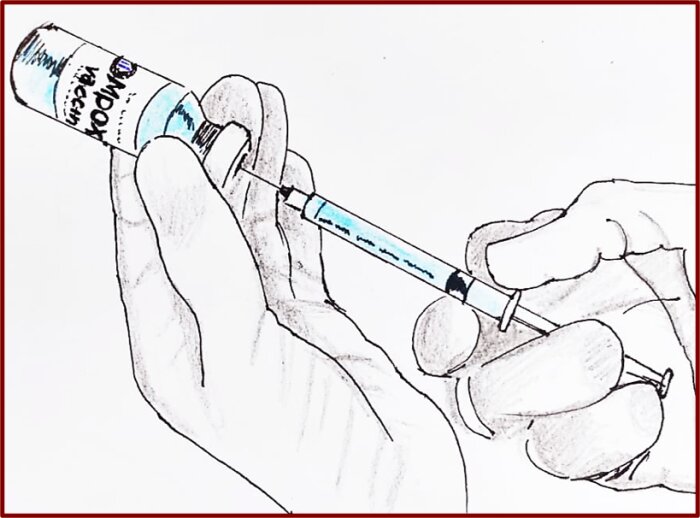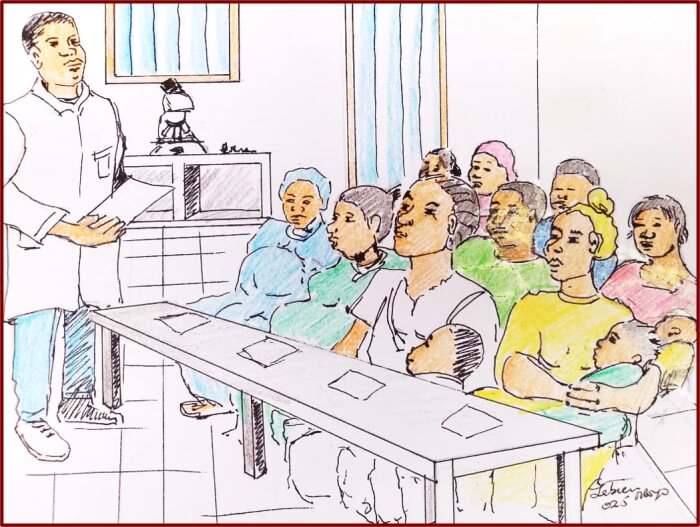The PregInPoxVac project consists of six Work Packages (WPs), each responsible for well-defined aspects of the project and its delivery.
WP 1: Trial management, coordination and communication
- Coordinated out of University of Antwerp (Belgium) and led by Prof. Jean-Pierre Van geertruyden in collaboration with Prof. Pierre Van Damme (CEV Vaccinopolis).
- This work package manages the overall coordination and administration of the clinical study, supports implementation of Steering Committee decisions, and ensures other Work Packages stay on track. It handles compliance with the grant agreement, including financial and technical reporting, and prepares charts, procedures and policies for approval by the Steering Committee. WP1 also organizes Consortium meetings, liaises with EDCTP, CEPI and BN, and supports capacity-building activities at the study site (WP2) through short and long-term training initiatives.
WP 2: Vaccine trial
- Led by University of Kinshasa (Democratic Republic of the Congo).
- This work package oversees the operational execution of the trial, including site assessments, participant enrolment, site-readiness activities, capacity building for high-quality data collection, and patient monitoring. ACE research will monitor data quality, conduct site initiation and close-out visits, and manage electronic Trial Master File.
WP 3: Social science
- Led by Fondazione Penta ETS (Italy).
- This work package provides qualitative research expertise to support all qualitative components of the trial. It explores the acceptability of mpox vaccination and attitudes toward trial participation among pregnant women, children, their families, and surrounding communities. By addressing complex decision-making factors, particularly in contexts with historical concerns about vaccine safety, it aims to inform future implementation in similar settings. Findings will be shared through WP1 and WP5 activities, and WP3 will also contribute to capacity-building activities in WP2.
WP 4: Data management and analysis
- Led by University of Antwerp (Belgium).
- This work packageanages data handling and analysis, ensuring compliance with regulatory standards. It is responsible for safeguarding participant and patient data, maintaining data quality and supporting training for clinical staff and local doctoral students. Training also includes data analysis and population statistics for principal investigators and future publication authors.
WP 5: Scientific coordination
- Led by University of Kinshasa (UNIKIN; Democratic Republic of the Congo)
- This work packagensures the scientific coordination of the project, including national and international capacity building through workshops for participants and staff. Led by UNIKIN professors who also supervise PhD students in Kinshasa and Belgium, the team is responsible for collecting high-quality data for both the clinical trial (WP2) and social science studies (WP3). They will (co-)write the scientific publications and share responsibility for manuscript approval with UAntwerp and Penta. To promote community engagement, the UNIKIN team will host a dissemination conference to present study results to participants, local and national authorities, and ethics committees.
WP6: Surveillance and follow-up of participants
- Led by University of Antwerp (Belgium)
- This work package incorporates community-based surveillance to improve case identification at the community level and to strengthen the link with health facilities. In doing so, it facilitates the recruitment of pregnant women for post-exposure treatment and ensures appropriate follow-up. Additionally, this work package strengthens the capacity in mpox diagnosis and management, and improves maternal and child health system infrastructure at the study site.
-
 Infographics created by Bienvenu Mboyo Bekau for the Department of Tropical Medicine of the University of Kinshasa as part of the PregInPoxVac study implemented in Boende, Tshuapa Province in the Democratic Republic of Congo.
Infographics created by Bienvenu Mboyo Bekau for the Department of Tropical Medicine of the University of Kinshasa as part of the PregInPoxVac study implemented in Boende, Tshuapa Province in the Democratic Republic of Congo. -
 Infographics created by Bienvenu Mboyo Bekau for the Department of Tropical Medicine of the University of Kinshasa as part of the PregInPoxVac study implemented in Boende, Tshuapa Province in the Democratic Republic of Congo.
Infographics created by Bienvenu Mboyo Bekau for the Department of Tropical Medicine of the University of Kinshasa as part of the PregInPoxVac study implemented in Boende, Tshuapa Province in the Democratic Republic of Congo.